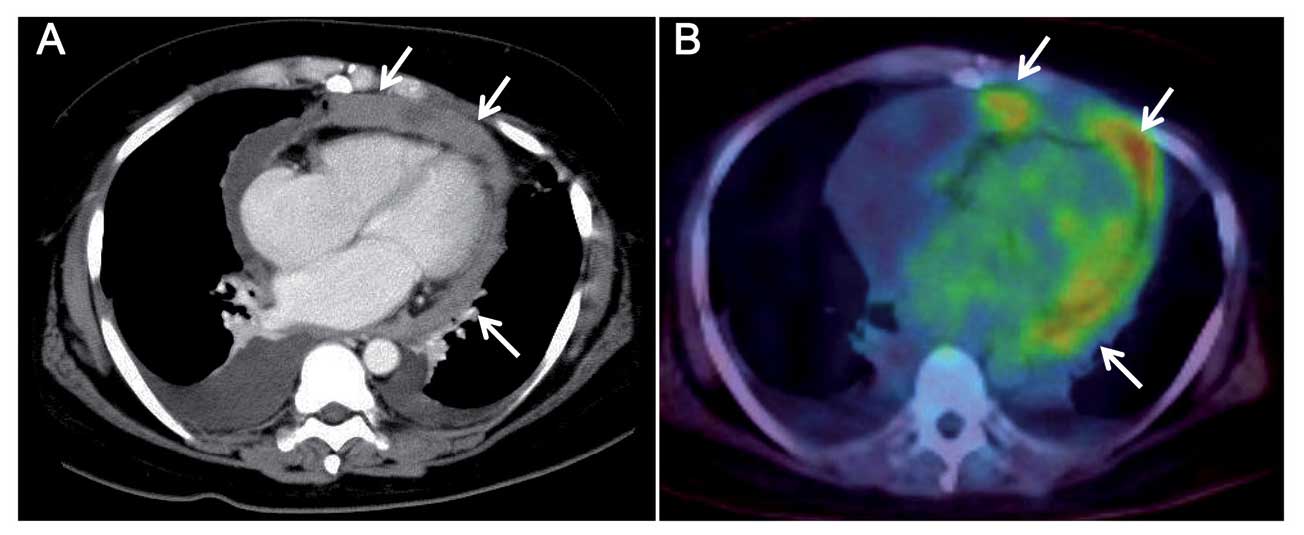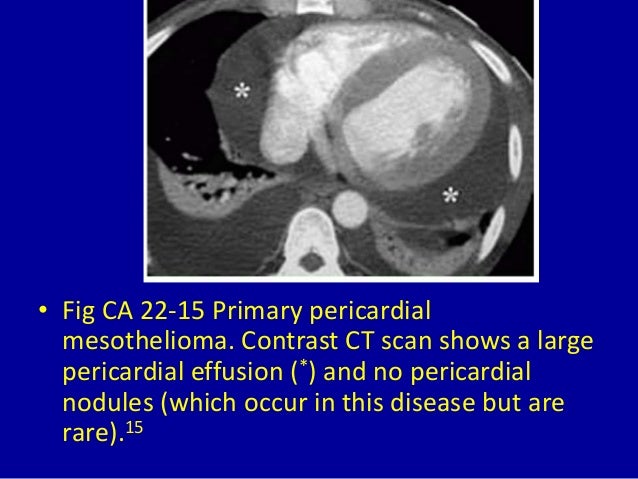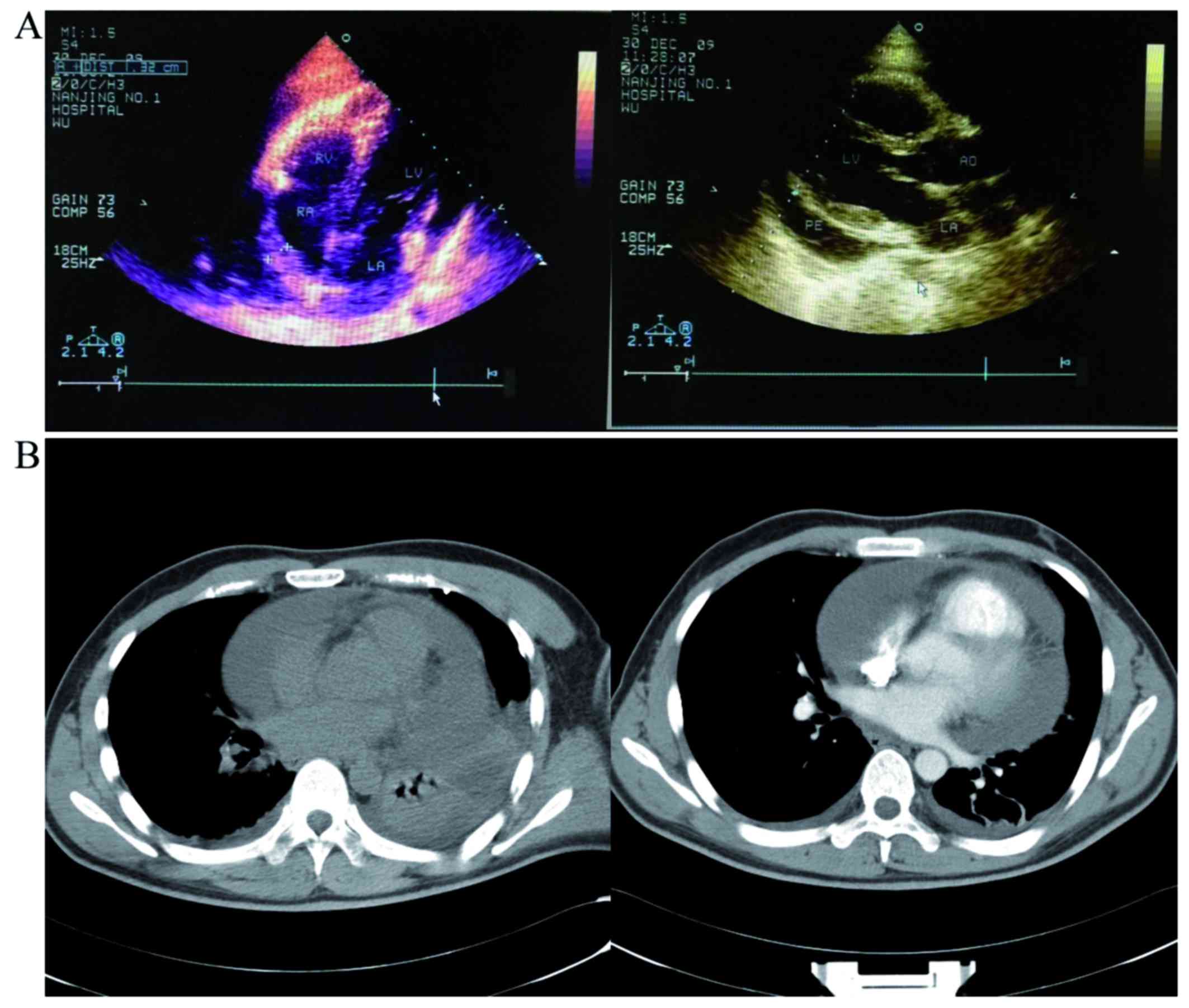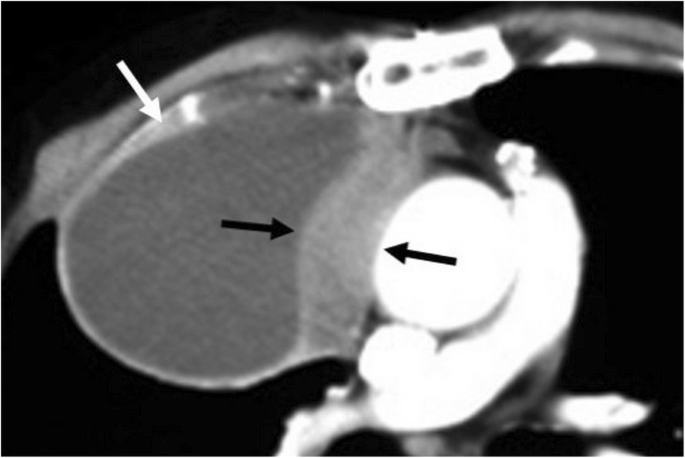Pericardial Mesothelioma Ct
Pericardial mesothelioma is an extremely rare form of asbestos cancer that develops in the pericardium a membrane that lines the heart.
Pericardial mesothelioma ct. Pericardial fluid in pericardial mesothelioma can be difficult to aspirate. But there are surgical and chemotherapeutic options that can extend survival time. It is the third most encountered tumor after angiosarcoma and rhabdomyosarcoma. Prognosis is extremely poor with most cases being diagnosed only after an autopsy.
Primary malignant pericardial mesothelioma pmpm is a rare tumor of the pericardium. It accounts for approximately 2 3 of all cardiac and primary pericardial tumors. Pericardial mesothelioma originates in the pericardium the double layered membrane that lines the heart. Pleural mass or nodular thickening of soft tissue attenuation tends to cause inward contraction of the hemithorax e g.
H however the most common malignant tumor involving the pericardium is metastasis. Ct scans show the fluid around the heart and possibly the cancer itself. Ct is most commonly used for imaging assessment of mesothelioma and sufficient for accurate staging of disease in most patients. It is one of the rarest forms of mesothelioma accounting for 1 2 of all diagnoses.
An injection of this dye can show evidence of the disease on imaging tests. Exposure to asbestos is the only known cause of malignant mesothelioma. However ct scans of the chest are still the most common imaging test. Another technique uses radioactive dye to find pericardial mesothelioma.
Many of our clients are suffering from mesothelioma but the more common type of mesothelioma is pleural the lining of the lung or peritoneal the stomach lining. Mesothelioma is a rare aggressive form of cancer that develops in the linings of the lungs abdomen or heart. Pericardial mesothelioma originates in the pericardium the protective membrane lining the heart. Both ct and mr imaging provide excellent delineation of the pericardial anatomy and can aid in the precise localization and characterization of various pericardial lesions including effusion constrictive pericarditis and pericardial thickening pericardial masses and congenital anomalies such as partial or complete absence of the pericardium.
Symptoms can include chest pain shortness of breath and general fatigue. In some instances the cancer has presented as secondary tumors caused by other forms of mesothelioma and other metastatic cancers. This disease accounts for approximately 1 percent of all mesothelioma diagnoses and has a generally poor prognosis. The average life expectancy of mesothelioma patients is 12 21 months after diagnosis.


















